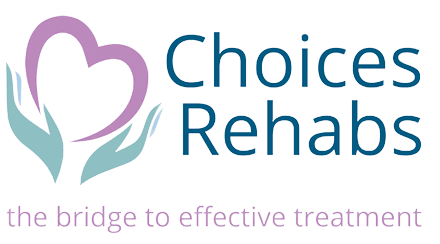What is Gambling Addiction?
Gambling addiction, also known as compulsive gambling or gambling disorder, is a mental health condition characterised by an urge to gamble despite the harmful consequences. People with this type of behavioural addiction have a strong desire to gamble, even when they know it is causing problems in their personal, financial, and professional lives.
Symptoms and Effects of Gambling Addiction:
What often starts as a bit of fun can quickly escalate into something far more serious. Recognising when a habit has become an addiction means you can treat the problem before it progresses. Some of the most common symptoms of gambling addiction include:
- Preoccupation with gambling and thoughts of future gambling experiences
- Difficulty controlling or stopping gambling behaviours
- Increasing amounts of money and time spent on gambling
- Using gambling as a way to escape from problems or negative emotions
- Lying about gambling activities or hiding them from loved ones
- Jeopardising or losing important relationships, job opportunities, or financial stability due to gambling
Causes of Gambling Addiction:
While there is no definitive cause of gambling addiction, there are certain factors that can contribute to it.
- Genetics: Some research suggests that gambling addiction may have a genetic component, as it tends to run in families.
- Brain chemistry: Gambling can activate the brain’s reward system, leading to feelings of pleasure and a desire to repeat the behaviour.
- Environmental factors: Exposure to gambling opportunities, stress, and availability of money can all increase the risk of developing a gambling addiction.
Treatment and Recovery:
Like many other behavioural addictions, problem gambling can be treated using a combination of psychological therapies in addition to some of the other treatment methods below:
- Cognitive-behavioural therapy (CBT): CBT is a type of talk therapy that can help individuals understand and change their thoughts and behaviours related to gambling.
- Medications: Some medications, such as antidepressants, can help reduce the urge to gamble.
- Support groups: Support groups, such as Gamblers Anonymous, provide a community of people who understand the challenges of gambling addiction and can offer support and encouragement.
- Lifestyle changes: Making changes to one’s daily routine, such as avoiding triggers and finding new hobbies, can also help with recovery from gambling addiction.
Preventing Gambling Addiction:
- Know your limits: Setting limits on the amount of time and money spent on gambling can help prevent it from becoming a problem.
- Seek help early: If you suspect you or a loved one may have a gambling problem, it is important to seek help as soon as possible.
- Avoid triggers: Avoiding places and activities that trigger the urge to gamble can help reduce the risk of relapse.
- Find alternative forms of entertainment: Engaging in other forms of entertainment, such as sports or hobbies, can help reduce the desire to gamble.
The Financial Consequences of Gambling Addiction
- Debts and Bankruptcy: One of the most common consequences of gambling addiction is financial instability. Individuals with gambling addictions may spend large amounts of money on this habit, which can result in significant debts and even bankruptcy.
- Job Loss and Career Damage: Gambling addiction can also have negative impacts on an individual’s career. People with gambling addiction may miss work to gamble, or they may use work resources, such as time and equipment, for gambling purposes. These behaviours can result in job loss or damage to one’s professional reputation.
- Strained Relationships: Financial difficulties caused by gambling addiction can also put a strain on relationships with loved ones. Family and friends may be forced to lend money or provide financial support, which can create resentment and tension.
The Emotional Impact of Gambling Addiction
- Anxiety and Depression: Gambling addiction can cause a range of negative emotions, including anxiety and depression. It can cause people to feel overwhelmed by their debts, ashamed of their behaviour, or hopeless about their future.
- Guilt and Shame: Gambling addiction can also lead to feelings of guilt and shame. Someone with a gambling addiction may feel guilty about the harm they have caused themselves and their loved ones, or they may be ashamed of their addiction and try to hide it.
- Loss of Self-Esteem: Gambling addiction can also affect an individual’s self-esteem. People with gambling addiction may feel like they have lost control over their lives, or they may feel like they are not good enough to overcome their addiction.
Treatment and Support for Gambling Addiction
- Professional Help: Individuals with gambling addiction should consider seeking professional help, such as therapy or addiction counselling. Therapy can help individuals understand and change their thoughts and behaviours related to gambling, and it can also provide a safe space for individuals to process their emotions.
- Support Groups: Support groups, such as Gamblers Anonymous, can also be a valuable resource for individuals with gambling addiction. These groups provide a community of individuals who understand the challenges of gambling addiction, and they offer support, encouragement, and accountability.
- Family and Friends: Loved ones can also play a critical role in the recovery of individuals with gambling addiction. Family and friends can provide support, encouragement, and accountability, and they can help individuals avoid triggers and make positive changes in their lives.
Preventing Gambling Addiction in Children and Young Adults
- Education and Awareness: Education and awareness about the risks and consequences of gambling addiction can help prevent it from developing in children and young adults. Parents and educators should discuss the dangers of gambling and encourage healthy forms of entertainment.
- Limiting Access: Limiting access to gambling opportunities, such as online gambling sites, can also help reduce the risk of gambling addiction in children and young adults. Parents and caregivers should be aware of the games and websites their children are using and take steps to restrict access if necessary.
- Encouraging Healthy Habits: Encouraging healthy habits, such as sports and hobbies, can also help prevent gambling addiction in children and young adults. By engaging in alternative forms of entertainment, children and young adults can reduce their risk of developing a gambling addiction and improve their overall well-being.
Gambling addiction is a serious condition that can have a profound impact on an individual’s life. It is important to be aware of the symptoms and effects of this issue, as well as the causes and potential treatments. By seeking help early, avoiding triggers, and engaging in alternative forms of entertainment, individuals can reduce their risk of developing a gambling addiction and improve their chances of recovery. With the right support and resources, it is possible to overcome a gambling addiction and lead a fulfilling and healthy life.
To get in touch with a member of our team email us at
Co-Dependency: Understanding the Dynamics of a Harmful Relationship Pattern
Co-dependency is a term that describes a pattern of behaviour in which one person supports or enables another person’s addiction, poor mental health, or immaturity. Co-dependent relationships can be harmful to both parties and can lead to negative outcomes, such as increased stress, reduced self-esteem, and relationship conflict. In this article, we will examine the causes of co-dependency, the characteristics of co-dependent relationships, and the steps individuals can take to break the cycle of co-dependency.
What Causes Co-Dependency?
Co-dependency can develop as a result of experiences in childhood, such as growing up in a family where addiction, abuse, or neglect was present. Children who grow up in these environments may develop patterns of behaviour that are designed to cope with these experiences, such as taking care of others and ignoring their own needs.
Co-dependency can also be driven by low self-esteem. Individuals with low self-esteem may seek out relationships where they feel needed and valued, and they may be willing to tolerate negative behaviour in order to maintain the relationship.
Individuals who have experienced abandonment or loss may be afraid of losing the relationship and are therefore willing to tolerate negative behaviour in order to keep the relationship intact.
Characteristics of Co-Dependent Relationships
One of the defining characteristics of co-dependency is enabling. This means that the co-dependent person supports or makes excuses for the other person’s negative behaviour, such as addiction, poor mental health, or immaturity.
Codependents constantly prioritise the needs of others over their own needs. They put the needs of their partners, children, or friends before their own and may neglect their own health, happiness, and well-being.
Co-dependents often struggle with setting and maintaining boundaries. They may be afraid to say no or to assert themselves, which can result in them being taken advantage of or being in abusive or toxic relationships.
Co-dependency can also result in increased levels of anxiety and depression. This can be due to the stress of the relationship, the neglect of one’s own needs, or the shame and guilt associated with enabling negative behaviour.
Breaking the Cycle of Co-Dependency
- Therapy: Therapy can be a valuable tool for individuals who are struggling with co-dependency. Therapy can help individuals understand their patterns of behaviour, work through their childhood experiences, and develop healthy coping skills and relationship patterns.
- Self-Care: Self-care is an important aspect of breaking the cycle of co-dependency. This includes taking care of one’s physical and emotional health, developing healthy relationships, and engaging in activities that bring joy and fulfillment.
- Boundary-Setting: Setting and maintaining boundaries is a critical step in breaking the cycle of co-dependency. This involves learning to say no, to assert oneself, and to put one’s own needs first.
- Seeking Support: Seeking support from friends, family, or support groups can also be helpful for individuals who are trying to break the cycle of co-dependency. These individuals can provide encouragement, accountability, and practical support during this process.
The Impact of Co-Dependency
Co-dependent relationships can cause significant emotional stress. The co-dependent person may feel overwhelmed by the responsibility of supporting their partner or may struggle with the guilt and shame associated with enabling negative behaviour.
It can also have a negative impact on one’s self-esteem. By constantly putting the needs of others first and neglecting their own needs, co-dependents may feel worthless or unimportant. The stress and neglect associated with co-dependency can also have a negative impact on one’s physical health. This can include physical symptoms such as headaches, fatigue, and insomnia.
Overcoming Co-Dependency
With the correct combination of psychological therapy and support, these toxic behavioural patterns can be overcome. Some of the most common forms:
- Therapy: Therapy can be a valuable tool for individuals who are struggling with co-dependency. A therapist can help individuals understand the root causes of their co-dependency and develop healthy coping skills and relationship patterns.
- Boundary-Setting: Setting and maintaining healthy boundaries is a critical aspect of overcoming co-dependency. This involves learning to say no, to assert oneself, and to put one’s own needs first.
- Self-Care: Engaging in self-care is an important step in overcoming co-dependency. This includes taking care of one’s physical and emotional health, developing healthy relationships, and engaging in activities that bring joy and fulfillment.
- Support: Seeking support from friends, family, or support groups can also be helpful for individuals who are trying to overcome co-dependency. These individuals can provide encouragement, accountability, and practical support during this process.
Co-dependency is a harmful relationship pattern that can lead to negative outcomes for both parties. Understanding the causes and characteristics of co-dependency can help people recognise when they are being taken advantage of and when they might be involved in a toxic relationship.
To get in touch with a member of our team email us at





